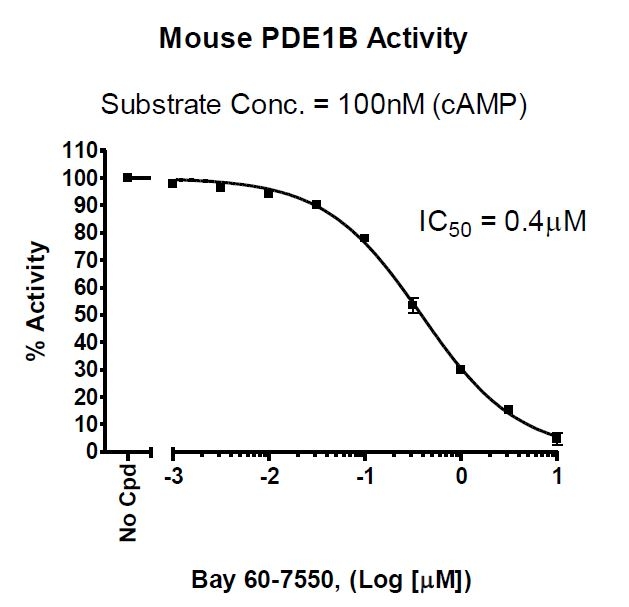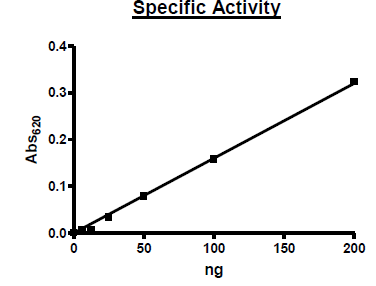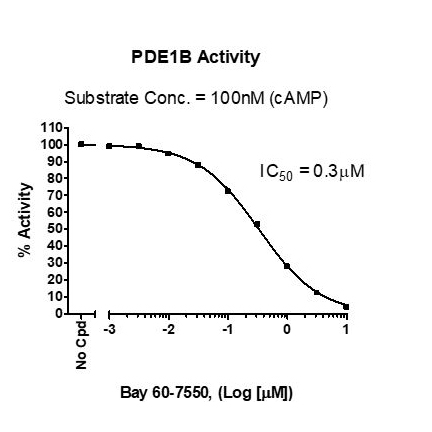
PDE1B (Mouse) Assay Kit
79663
Product group Assays
Overview
- SupplierBPS Bioscience
- Product NamePDE1B (Mouse) Assay Kit
- Delivery Days Customer7
- CertificationResearch Use Only
- Scientific DescriptionPhosphodiesterases (PDEs) play an important role in the dynamic regulation of cAMP and cAMP signaling. Mouse PDE1B, also known as cAMP-inhibited phosphodiesterase, has been implicated in cardiovascular function and fertility. The Mouse PDE1B Assay Kit is designed for identification of inhibitors of Mouse PDE1B using fluorescence polarization. The assay is based on the binding of a fluorescent nucleotide monophosphate generated by Mouse PDE1B to the binding agent. Phosphodiesterases catalyze the hydrolysis of the phosphodiester bond in dye-labeled cyclic monophosphates. Beads selectively bind the phosphate group in the nucleotide product. This increases the size of the nucleotide relative to unreacted cyclic monophosphate. In the polarization assay, dye molecules with absorption transition vectors parallel to the linearlypolarized excitation light are selectively excited. Dyes attached to the rapidly-rotating cyclic monophosphates will obtain random orientations and emit light with low polarization. Dyes attached to the slowly-rotating nucleotide-bead complexes will not have time to reorient and therefore will emit highly polarized light. The key to the Mouse PDE1B Assay Kit is the specific binding agent. Using this kit, only two simple steps on a microtiter plate are required for Mouse PDE1B reactions. First, the fluorescently labeled cAMP is incubated with a sample containing Mouse PDE1B for 1 hour. Second, a binding agent is added to the reaction mix to produce a change in fluorescent polarization that can then be measured using a fluorescence reader equipped for the measurement of fluorescence polarization.
- Reactivity SupplierMouse
- UNSPSC41116100




